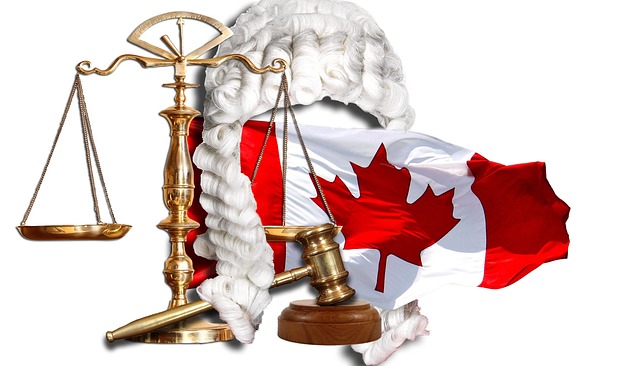Corporate Crime Investigations are tackling intricate cases of high-level fraud within merger agreements, exposing illicit activities and strengthening regulatory frameworks globally. With a surge in complex cross-border transactions, authorities scrutinize deals to prevent anti-competitive practices. Unraveling corporate fraud requires specialized knowledge and financial analysis, surpassing general criminal defense strategies. Regulatory frameworks are essential tools for fairness and protection during such transactions, with effective enforcement fostering transparency and trustworthiness. Strategic approaches using data analytics and best practices ensure successful case outcomes and deter future misconduct.
Corporate Crime Investigations delve into complex fraud schemes that thrive within corporate structures. This article offers a comprehensive guide to understanding high-level fraud, its far-reaching impact, and the increasing regulatory scrutiny, particularly focusing on Regulatory Challenges in Merger Agreements. We explore key challenges in unraveling corporate fraud, dissect critical regulatory frameworks, and equip readers with effective investigation strategies to combat these insidious crimes.
- Understanding Corporate Crime Investigations: A Glimpse into High-Level Fraud and Its Impact
- The Rising Tide of Regulatory Scrutiny: Why Merger Agreements are Under the Microscope
- Key Challenges in Unraveling Corporate Fraud: Complexities and Unique Barriers
- Regulatory Frameworks and Their Role: Ensuring Fairness and Protecting Stakeholders
- Strategies for Effective Investigations: Tools, Techniques, and Best Practices to Combat Corporate Crime
Understanding Corporate Crime Investigations: A Glimpse into High-Level Fraud and Its Impact

Corporate Crime Investigations delve into complex scenarios of high-level fraud, a growing concern across the country. These cases often revolve around regulatory challenges in merger agreements, where intricate financial transactions can mask illicit activities. Skilled investigators navigate through layers of corporate labyrinths to uncover discrepancies and achieve extraordinary results for their clients.
The impact of such investigations is profound, as they not only expose fraudulent practices but also strengthen legal frameworks. By scrutinizing these cases, regulatory bodies gain insights into enhancing prevention strategies and ensuring compliance across various industries. This proactive approach aims to deter potential perpetrators and uphold the integrity of business operations, ultimately fostering a more transparent and trustworthy corporate environment.
The Rising Tide of Regulatory Scrutiny: Why Merger Agreements are Under the Microscope

In recent years, the corporate landscape has been marked by an increasing tide of regulatory scrutiny, with merger agreements coming under intense examination from authorities worldwide. This shift is largely driven by the growing complexity and frequency of cross-border transactions, as well as the need to protect shareholders and maintain market integrity. Regulatory challenges in merger agreements are now at the forefront of legal and business discussions, reflecting a heightened awareness of potential risks and ethical pitfalls.
The heightened scrutiny is particularly notable in high-stakes cases where massive mergers and acquisitions are involved. Authorities are carefully reviewing these deals to ensure they do not result in anti-competitive practices or undisclosed conflicts of interest. Winning challenging defense verdicts in such scenarios requires robust legal strategies focused on demonstrating compliance, transparency, and fair market value. By proactively addressing potential regulatory issues, companies can avoid indictment and navigate the complex regulatory environment with greater confidence.
Key Challenges in Unraveling Corporate Fraud: Complexities and Unique Barriers

Unraveling corporate fraud presents a myriad of complex challenges due to the intricate nature of business operations and the often-elusive motivations behind illicit activities. One significant hurdle is navigating the regulatory landscape, particularly in merger agreements where regulatory compliance is paramount. The convergence of multiple legal frameworks and industry-specific regulations can create a labyrinthine environment for investigators. Understanding these intricacies at each stage of the investigative and enforcement process, from initial suspicion to trial, is essential for building solid cases.
Moreover, corporate fraud cases often involve sophisticated schemes and intricate financial structures designed to obscure the illicit activities. This calls for specialized knowledge in financial analysis and accounting practices. General criminal defense strategies may not adequately address the unique barriers posed by corporate fraud, requiring a nuanced approach that considers both regulatory challenges in merger agreements and the complex financial web these crimes entail. Winning challenging defense verdicts demands a deep understanding of these complexities to ensure justice is served while navigating the intricate maze of business and legal protocols.
Regulatory Frameworks and Their Role: Ensuring Fairness and Protecting Stakeholders

Regulatory frameworks play a pivotal role in corporate crime investigations, ensuring fairness and protecting stakeholders across industries. These frameworks are designed to establish clear guidelines for business operations, especially during complex transactions like merger agreements. The onus lies on regulatory bodies to keep pace with evolving economic landscapes while adapting their policies to address emerging regulatory challenges in merger agreements.
In the realm of white-collar defense, understanding these regulatory nuances is paramount for both corporate and individual clients involved in high-stakes cases. Effective enforcement ensures that mergers are not exploited as vehicles for fraudulent activities or unethical practices. By fortifying regulatory frameworks, stakeholders gain assurance that their interests are safeguarded, fostering a more transparent and trustworthy business environment.
Strategies for Effective Investigations: Tools, Techniques, and Best Practices to Combat Corporate Crime

In the realm of corporate crime investigations, a strategic approach is paramount to unraveling complex frauds and ensuring justice. The process demands a robust toolkit that includes sophisticated data analytics, digital forensics, and expert witness testimony. By leveraging these tools, investigators can navigate regulatory challenges in merger agreements and other financial transactions, unearthing discrepancies and potential violations. Advanced techniques such as pattern recognition and network analysis help identify suspicious patterns and relationships, revealing white-collar and economic crimes that may otherwise go undetected.
Best practices emphasize meticulous documentation, adherence to legal protocols, and collaboration between various agencies. Robust internal controls and compliance programs are also key deterrents, acting as a shield against potential indictments. Moreover, staying abreast of evolving legal frameworks and industry best practices ensures that investigations remain effective, even in the face of regulatory changes. Ultimately, these strategies work together to foster an environment where corporate misconduct is not only identified but also effectively addressed, leading to complete dismissal of all charges in favorable cases.
Corporate crime investigations are an intricate web of regulatory scrutiny, complex fraud unravelling, and robust stakeholder protection. As seen through the lens of rising merger agreement examinations, understanding these investigations is paramount in today’s business landscape. Overcoming unique challenges, leveraging effective strategies, and adhering to strong regulatory frameworks are crucial steps in combating corporate crime. By navigating these aspects, we can ensure fairness, maintain public trust, and foster a more transparent and accountable business environment. Specifically, addressing regulatory challenges in merger agreements plays a pivotal role in this effort, underscoring the need for diligent investigations and proactive measures.






